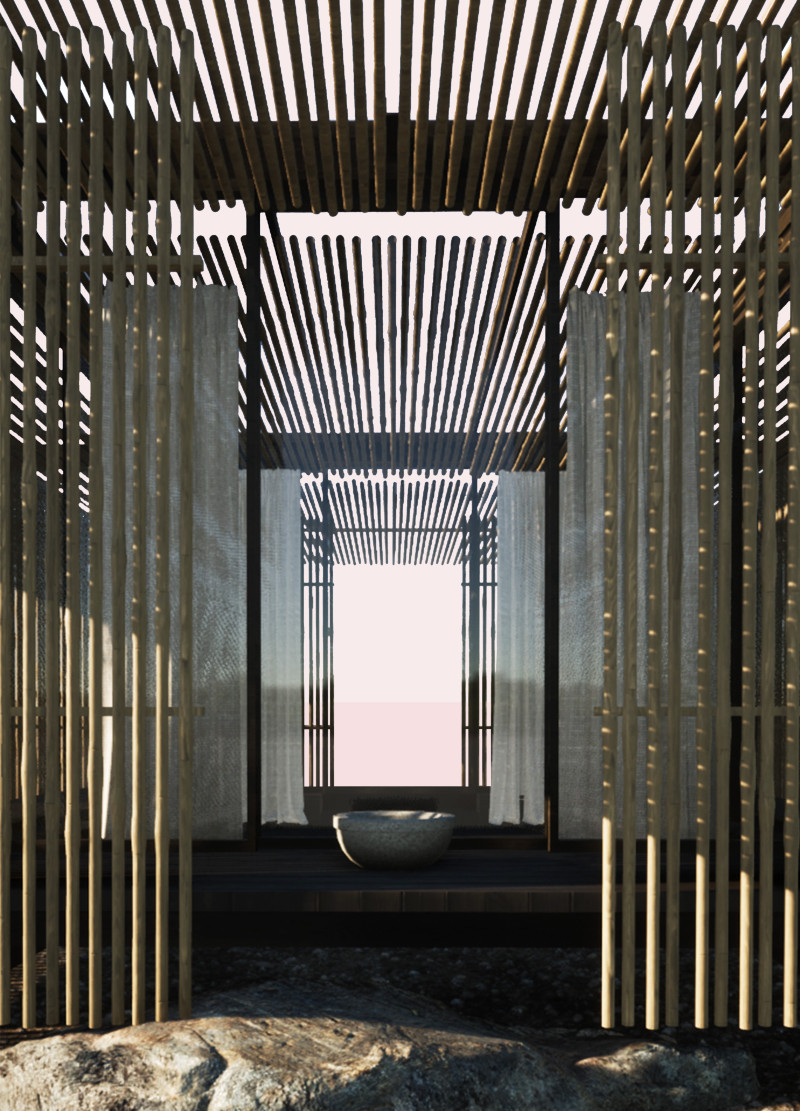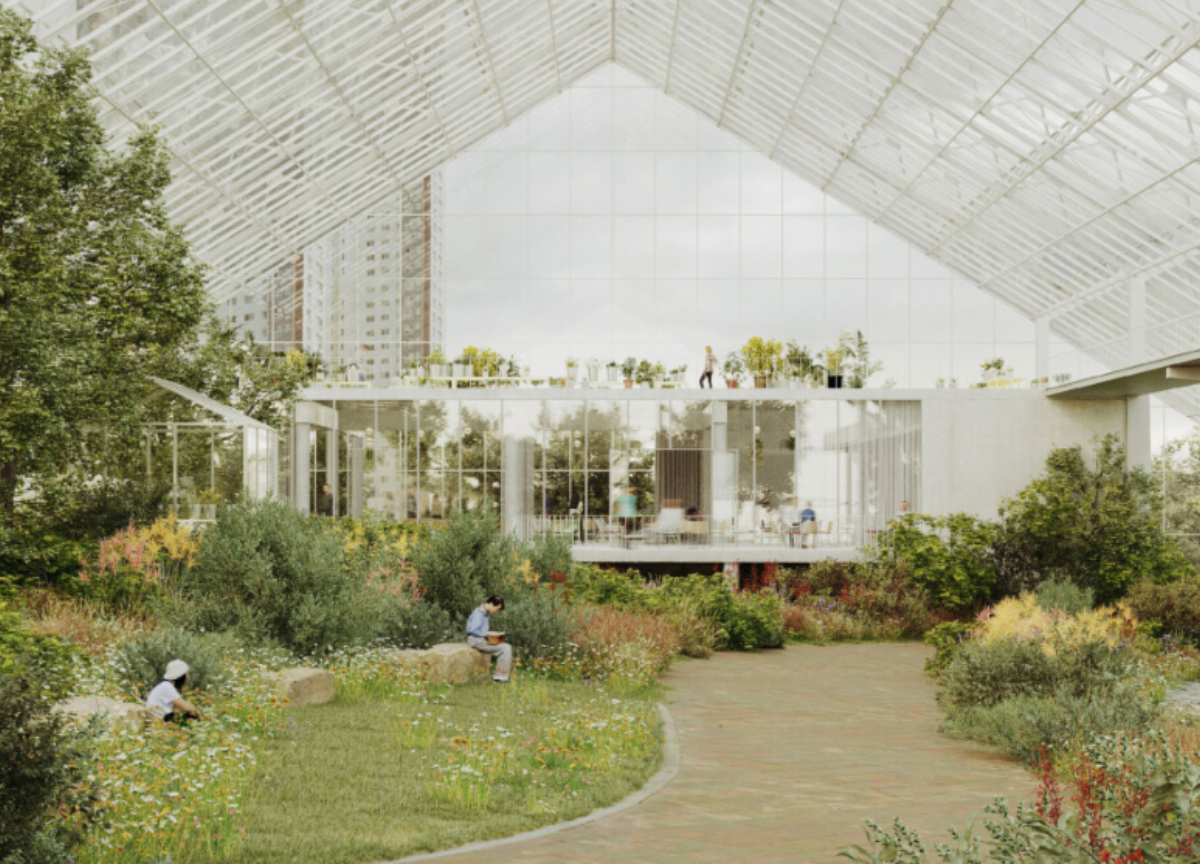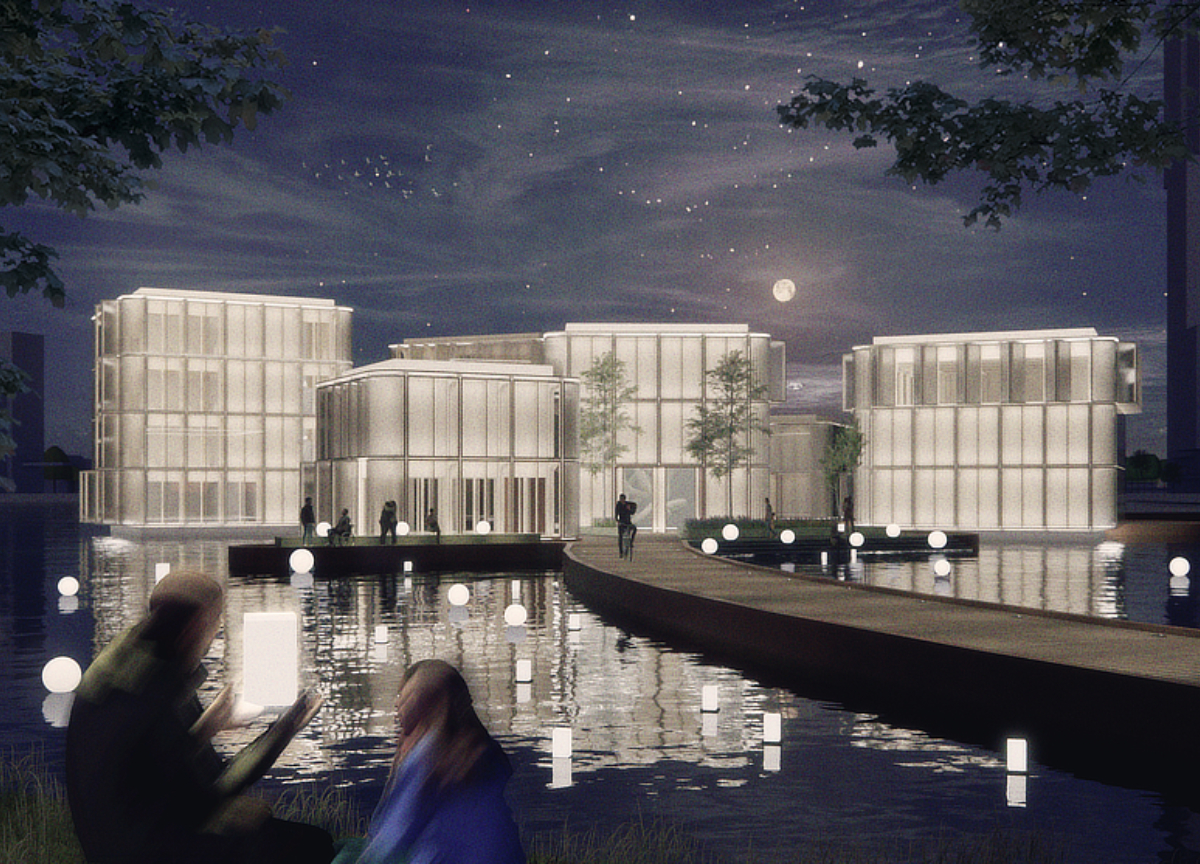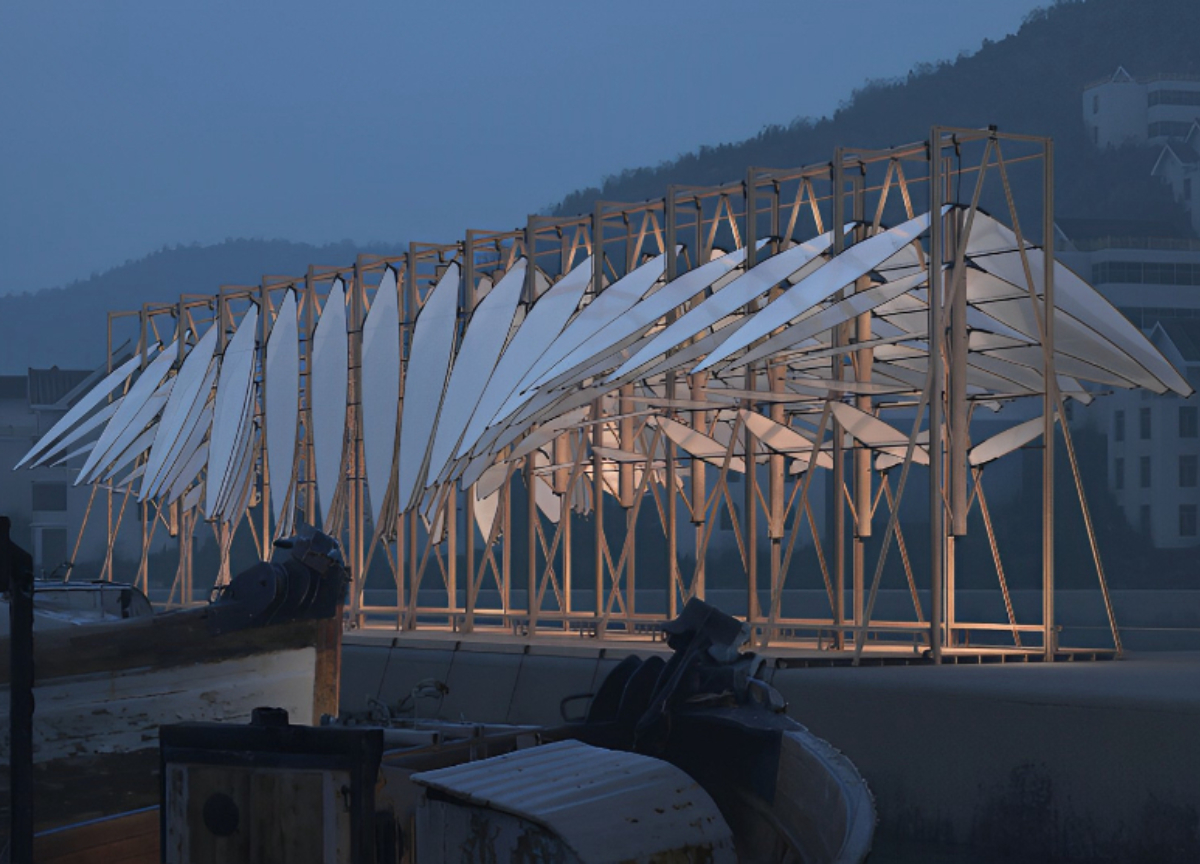5 key facts about this project
KOMOREBI is situated in Vale de Moses, Portugal, and functions as a retreat designed for meditation and mindfulness practices. The overall design concept revolves around the relationship between indoor and outdoor areas. By utilizing layered architectural elements, the structure blends with the natural surroundings and enhances the user experience.
Structure and Materials
The main feature of the cabin is its bamboo skin, which serves as the outer facade. This material effectively filters sunlight and reflects the Japanese idea of komorebi, where light filters through leaves. This choice strengthens the connection to nature and creates a welcoming environment shaped by natural light.
Spatial Configuration
The interior is simply organized, featuring areas for meditation and treatment alongside necessary storage. Sliding glass doors allow for easy interaction with the landscape while offering protection from the weather. Curtains provide privacy and limit outside distractions, creating a focused atmosphere that encourages contemplation.
Water Integration
The design includes a washing facility placed outside the main cabin, linked to a water tank that provides continuous access to water. This arrangement helps maintain the visual appeal of the interior and reinforces the connection to the environment. A gutter collects rainwater, directing it into a stone bowl, which adds a practical element while introducing the calming sound of flowing water.
Sustainable Design Strategy
Using precut wood components, the construction minimizes on-site assembly, making it efficient. This method also allows for future relocation, providing flexibility if the need arises. The use of glass sliding windows and bamboo canes promotes natural ventilation, ensuring comfort indoors. These design aspects highlight sustainability as a key focus.
The thoughtful interplay of light and shadow, combined with the careful integration of nature, creates a peaceful space for reflection and connection, making the cabin a meaningful retreat.
























































